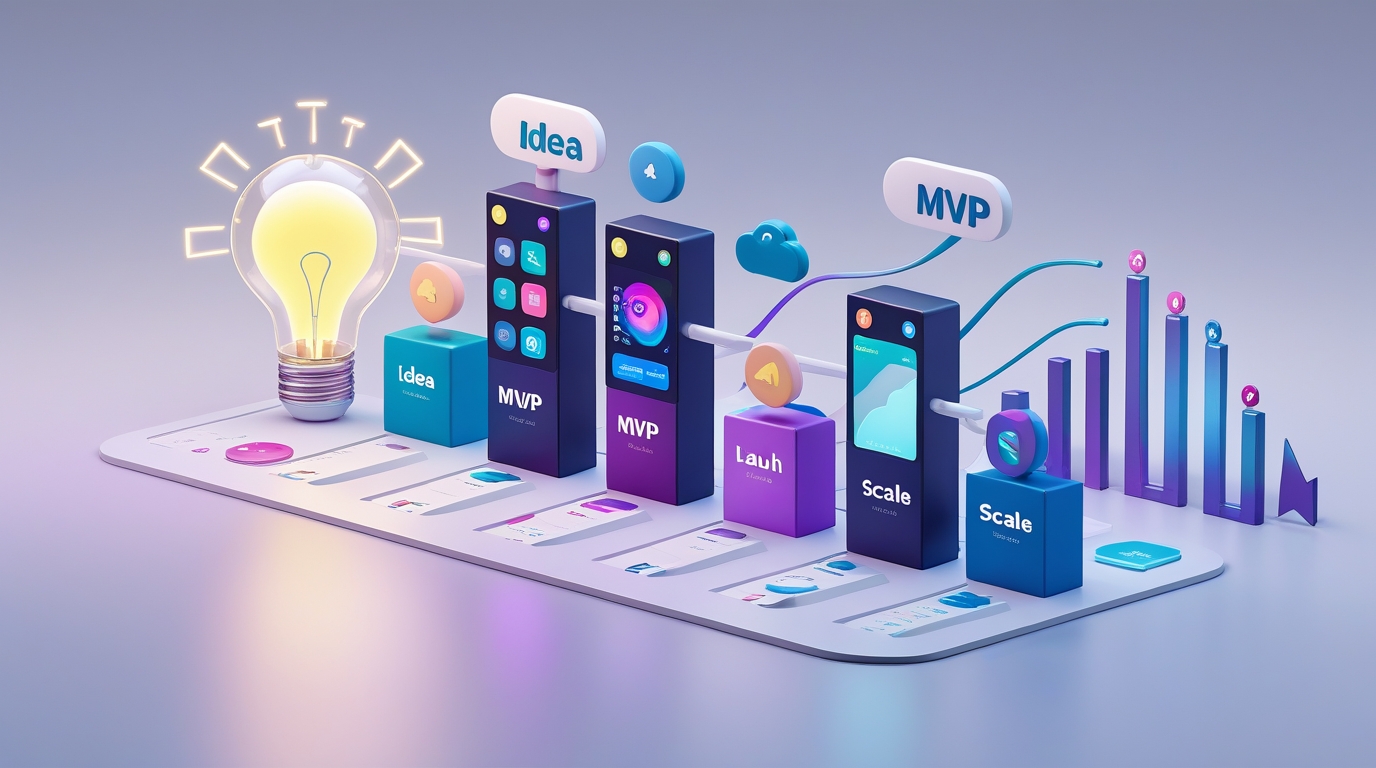As digital transformation accelerates, many businesses struggle to keep pace with the rising demands of technology and the shortage of skilled IT professionals. These challenges often result in delayed innovation and increased operational expenses.
This guide explores how IT outsourcing services can address those issues by providing access to expert talent and scalable solutions. You’ll learn what IT outsourcing is, the types of services available, key business benefits, when it makes sense to outsource, and the latest trends shaping 2025. Let’s explore each aspect in detail!
What Are IT Outsourcing Services?
IT outsourcing services involve delegating specific IT functions—such as software development, infrastructure support, cybersecurity or help desk operations—to external providers. Instead of managing all tasks in-house, businesses collaborate with specialized IT outsourcing companies to handle these services more efficiently. This helps reduce costs, improve scalability, and provide access to advanced technology and expertise. Whether for one-time projects or ongoing support, outsourcing enables companies to stay focused on core objectives while experts handle the technical workload.
Types of IT Outsourcing Services
IT outsourcing companies offer a variety of services that typically fall into the following categories:
- Infrastructure Outsourcing – Includes IT help desk, service desk support, data center management, network monitoring, and cloud infrastructure handling.
- Application Outsourcing – Covers custom software development, legacy system upgrades, application testing, QA, and software implementation.
- Business Process Outsourcing (BPO) – Encompasses HR, payroll, customer service, marketing support, and financial process management.
- DevOps and Cloud Services – Involves CI/CD automation, cloud migration, containerization, system performance monitoring, and cloud security.
- Cybersecurity and Compliance Outsourcing – Handles threat detection, incident response, data protection, firewall management, and regulatory compliance.
- Dedicated Teams & Offshore Development Centers (ODC) – Offers scalable remote teams, project-based agile squads, and long-term technical staff extensions.
These IT outsourcing services provide flexible solutions that align with specific business goals, timelines, and budget considerations.
Key Benefits of IT Outsourcing Services
Outsourcing your IT operations offers several strategic advantages that support growth, agility, and long-term efficiency:
- Cost Reduction
Outsourcing companies often operate in cost-effective regions, allowing businesses to reduce spending on salaries, training, infrastructure, and overhead. It turns fixed costs into variable expenses aligned with actual usage. - Access to Specialized Expertise
IT outsourcing companies employ skilled professionals across various domains such as cloud, AI, cybersecurity, and software development—helping businesses access top-tier talent without lengthy recruitment processes. - Scalability and Flexibility
Whether scaling up for a large project or downsizing after completion, outsourcing allows businesses to adjust their team size easily without long-term commitments. - Faster Time-to-Market
With dedicated external teams, projects can move forward more quickly, enabling faster launches and quicker adaptation to market demands. - 24/7 Support and Global Coverage
Many outsourcing providers offer around-the-clock services, ensuring uninterrupted operations, issue resolution, and high availability across time zones. - Focus on Core Business
By offloading technical and operational tasks, internal teams can focus on strategic priorities like innovation, customer engagement, and business expansion. - Access to Innovation and Best Practices
Leading outsourcing companies stay ahead with advanced tools, automation, and proven methodologies—bringing continuous improvement and competitive advantage.
In short, leveraging IT outsourcing services empowers businesses to optimize costs, improve performance, and stay agile in an ever-evolving digital landscape.
When to Consider IT Outsourcing?
Businesses should consider IT outsourcing when they face capacity or expertise gaps, budget constraints, or the need to accelerate projects. A persistent talent shortage often makes outsourcing necessary: surveys indicate that over half of hiring managers struggle to find skilled IT workers. If your team cannot recruit specialized developers or manage peak workloads, outsourcing is a viable solution. Budget constraints are another common driver for outsourcing. By converting fixed costs—such as salaries, infrastructure, and equipment—into variable expenses based on actual usage, businesses can significantly reduce overhead. Delegating services like cloud management or IT support to external providers helps streamline spending without compromising service quality.
Outsourcing is also wise when a company needs to focus on core competencies. If your internal staff is bogged down by routine tasks (like system maintenance or technical support), it makes sense to let an IT outsourcing partner handle these so your team can drive product development or market growth. Rapid growth or entering new markets may require skills you don’t have in-house; this is a great time to work with an experienced IT outsourcing company. Finally, outsourcing is also highly effective during digital transformation initiatives. Whether it’s cloud migration, AI integration, or a cybersecurity overhaul, partnering with an experienced IT outsourcing company provides the specialized expertise and scalable support needed to execute complex changes successfully.
Key Trends in IT Outsourcing for 2025
The IT outsourcing landscape is rapidly evolving, with several trends shaping how businesses engage with external providers:
- Rising Demand
More organizations are increasing their IT outsourcing budgets to overcome internal skill shortages, improve efficiency, and accelerate innovation. - AI and Automation Integration
Artificial intelligence is now a core part of outsourcing strategies. Businesses are using AI tools for customer service, data analysis, predictive maintenance, and even automated code generation—resulting in faster delivery and improved productivity. - Extended Workforce Models
Companies are adopting hybrid sourcing strategies that combine outsourcing, insourcing, and global in-house centers (GICs). This approach offers flexibility while maintaining control over critical functions. - Value-Based Partnerships
Traditional hourly billing models are being replaced by performance- and outcome-driven contracts. Businesses now expect measurable value, such as faster delivery, better quality, or increased ROI from their outsourcing partners. - Nearshoring and Localization
There’s a growing preference for nearshore outsourcing providers, especially those in closer time zones or with better cultural alignment. This shift aims to improve collaboration, communication, and responsiveness. - Specialized and Niche Services
Demand is rising for niche expertise in areas like AI, DevOps, blockchain, and cybersecurity. Businesses increasingly rely on outsourcing companies to manage these advanced, high-skill functions. - Cybersecurity as a Priority
With increasing threats, security has become a top concern. Many organizations are investing in outsourced cybersecurity solutions, including managed security services and dedicated security operations centers (SOCs), to ensure compliance and protection.
In short, the future of IT outsourcing lies in building strategic partnerships that offer innovation, scalability, and high-quality delivery—enabling businesses to stay competitive in an increasingly digital world.
How to Choose an IT Outsourcing Company?
Selecting the right IT outsourcing company is crucial. First, clearly define your goals and scope. Next, evaluate providers for technical expertise, industry experience, and track record. Check that the partner’s team has the skills you need (e.g. cloud engineers, cybersecurity experts). Communication and culture fit are also vital: ensure they work in your time zone or have overlap, and that language fluency is solid. Look for flexible engagement models (fixed-price vs. dedicated team) to match your project. Security and compliance standards must align with your requirements, so verify any certifications or protocols the vendor follows. Finally, review references and case studies to ensure they have successfully delivered similar projects. By carefully vetting candidates, you choose a partner that not only fills skill gaps but truly enhances your IT strategy.
Conclusion
IT outsourcing services enable businesses to leverage external expertise, reduce costs, and focus on growth. By partnering with a proven IT outsourcing company, organizations can access specialized talent and 24/7 support without heavy overhead.
Now, Are you ready to take the next step?
Devoptiv is a trusted IT outsourcing company specializing in solutions like Website Development Outsourcing, App Development Outsourcing, Outsourcing PPC Services, SEO Outsourcing, IT Outsourcing, and dedicated development teams. Whether you need an extra developer, a fully managed service, or ongoing technical support, DevOptiv has the expertise to help your business thrive.
We invite you to explore DevOptiv’s services and book a free consultation to discuss how outsourcing can drive your success.
Frequently Asked Questions
- What are examples of IT outsourcing services?
IT outsourcing services can range from technical support to advanced software development. Common examples include application development, IT help desk and support, cloud infrastructure management (such as AWS or Azure), network monitoring, cybersecurity services, QA and software testing, and DevOps support. These services may be offered as part of short-term projects or ongoing managed service models.
- How can an IT outsourcing company benefit my business?
An IT outsourcing company enables businesses to access specialized expertise, advanced technologies, and flexible staffing without investing heavily in internal resources. It helps reduce hiring and infrastructure costs while speeding up project delivery. Outsourcing also allows businesses to focus on strategic goals by offloading routine or complex IT functions to experienced professionals.
- When should a business consider outsourcing its IT?
Businesses should consider outsourcing when they face challenges like skill shortages, limited in-house capacity, tight deadlines, or high operational costs. It’s particularly beneficial during periods of growth, digital transformation, or when implementing complex technologies such as AI, cybersecurity frameworks, or cloud migration. Outsourcing provides scalable support and technical know-how precisely when it’s needed most.
- Are IT outsourcing services cost-effective?
Yes, outsourcing is often a cost-effective solution. It allows companies to reduce fixed overhead by converting them into flexible, usage-based costs. By accessing global talent and eliminating the need for in-house infrastructure or full-time hiring, businesses can control spending more efficiently while maintaining quality and productivity.
- What are the top trends in IT outsourcing for 2025?
Major trends in 2025 include the growing integration of AI and automation into outsourced services and outcome-based contracts that reward performance. Businesses are also increasingly seeking niche expertise in areas like cybersecurity, blockchain, and DevOps. Flexible workforce models that blend internal teams with outsourced resources are also becoming more popular for greater agility and control.







